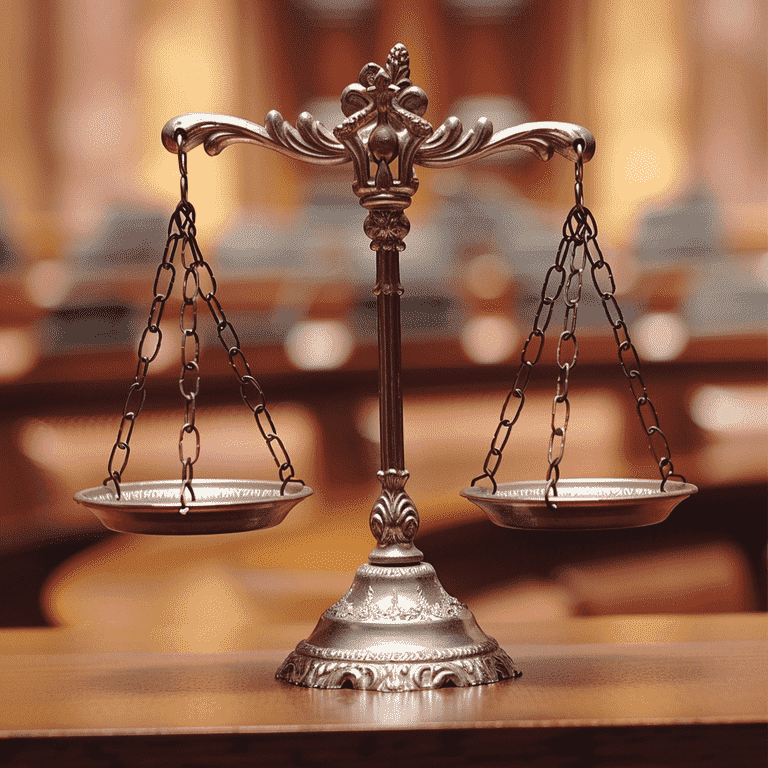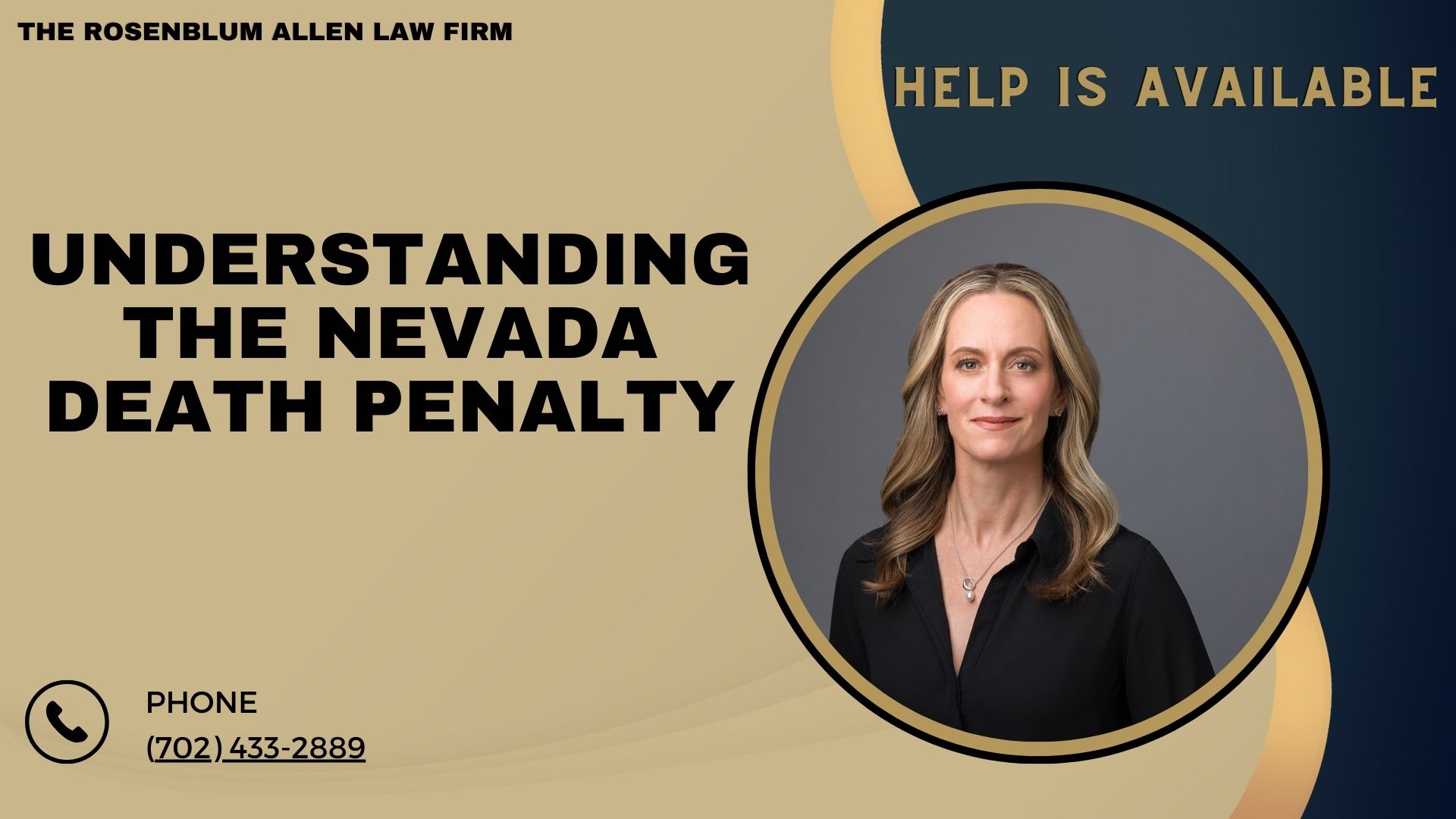Welcome to a journey through the complex topic. It is often controversial. We will cover the death penalty in Nevada. This guide explains the complex layers of capital punishment. They include the legal, ethical, and societal layers in the state. We’ll guide students, legal pros, and the curious through the history, laws, and debates. They paint the full picture of Nevada’s view on this ancient punishment.
History of the Death Penalty in Nevada
The story of capital punishment in Nevada is old. It has changed with society and the law.
Early practices and legal framework
In the early days of Nevada’s statehood, the death penalty was common for many crimes. It was carried out in ways that today might seem old-fashioned or even barbaric. These initial frameworks were set up as deterrents, not just as punishment. They had little regard for today’s legal process and rights.
Significant changes and reforms over time
Over the years, Nevada’s death penalty laws have changed a lot. They reflect shifts in public opinion, legal philosophy, and technology. Key milestones include:
The shift from public to private executions
Changes in the choice of execution methods
The introduction of legal safeguards to prevent wrongful convictions
Landmark cases influencing Nevada’s death penalty laws
Several cases have had a lasting impact on the death penalty in Nevada. They set precedents for legal procedures and defendants’ rights. These cases shaped the law. They sparked public debate on the morality and efficacy of capital punishment.

Legal Framework Surrounding the Death Penalty in Nevada
To understand Nevada’s current death penalty, we must dive deep into the laws. They determine who can receive a death sentence and how to execute it.
Statutory provisions for the death penalty
Nevada law lists only a few crimes that can lead to a death sentence. Each must have specific aggravating circumstances that make the crime worse.
Eligible crimes
First-degree murder with specific aggravating factors
Certain acts of terrorism
Aggravating and mitigating circumstances
Aggravating factors include the murder of a public officer. Also, a murder committed during the commission of another serious felony. These factors can make a defendant eligible for the death penalty. , mitigating factors can also have an effect. They include the defendant’s mental health or background. They can lead to a lesser sentence.
The legal process for death penalty cases
The path from arrest to execution in death penalty cases has many legal protections. They are meant to ensure fair and accurate sentencing.
Arrest and charges
The first stage is where the accused learns the charges and the potential for a death sentence.
Trial and sentencing
An in-depth examination of the trial process focuses on the selection of jurors. It also looks at the showing of evidence. Then, it covers the separate sentencing phase in capital cases.
Appeals and review processes
This is an overview of the long appeals process. Designed to catch errors or injustices before carrying out an irreversible sentence.

Ethical and Societal Considerations
The debate over the death penalty in Nevada isn’t just legal. It’s deeply ethical and societal. It touches on basic questions about justice, morality, and human rights.
Arguments for the Death Penalty
Supporters of capital punishment in Nevada argue from a few critical standpoints:
Retribution and justice: For the most heinous crimes, the death penalty is seen as a just form of retribution, providing closure to victims’ families.
Deterrence to potential criminals: It’s argued that the threat of death deters would-be offenders from committing capital crimes.
Arguments against the death penalty
Opponents, however, raise significant concerns:
Moral and ethical concerns: Many question the morality of state-sanctioned killing, arguing that it undermines the value of human life.
Risk of wrongful convictions: The irreversible nature of the death penalty is troubling in light of the possibility—however slight—of wrongful convictions.
Racial and socioeconomic disparities: Studies indicating disparities in death penalty sentencing raise questions about fairness and equality under the law.
Public opinion in Nevada
Nevada residents have diverse views on the death penalty. These views reflect a range of moral, ethical, and practical concerns. Polls suggest varying levels of support and opposition. They are influenced by recent cases, national debates, and changing values.

The Death Penalty and Human Rights
The discussion about the death penalty in Nevada extends beyond the state. It touches on broader human rights issues.
International perspectives on the death penalty
Globally, the death penalty is being abolished. Human rights groups are advocating for its end. How Nevada’s policies fit into this global picture is a matter of ongoing debate.
Human rights organizations’ views
Amnesty International and the United Nations have criticized the death penalty. They see it as a violation of the right to life. They urge states like Nevada to consider alternatives.
Comparison with other U.S. states and countries
A comparative look reveals a divided landscape:
U.S. states: The death penalty remains legal in several states, though moratoriums and legal challenges are expected.
Countries: Over two-thirds of the world’s nations have abolished the death penalty in law or practice, highlighting a global shift away from capital punishment.

Methods of Execution in Nevada
Nevada’s method for carrying out death sentences has evolved. It reflects tech advances and changing views.
Historical methods
From hangings to firing squads, Nevada’s early execution methods were direct and public. A timeline of these methods illustrates the state’s shift towards more “humane” practices.
Current method(s) of execution
Today, lethal injection is the main method. But, it faces challenges. These include debates over drug protocols and ethics.
Controversies and challenges related to execution methods
Recent years have seen:
Legal battles over drug compositions and suppliers
Ethical debates over the pain and suffering associated with lethal injections
Challenges in obtaining the necessary drugs due to pharmaceutical companies’ restrictions
Death Row in Nevada
Life on Death Row in Nevada offers a stark glimpse into the human side of capital punishment. It highlights the conditions, emotions, and legal battles. They define the final years of those sentenced to death.
Living conditions and inmate rights
Inmates on death row in Nevada experience a highly regimented life, with:
Limited contact: Interaction with other inmates and the outside world is severely restricted.
Solitary confinement: Many spend 22 hours or more per day in solitary confinement, a practice that has raised significant mental health concerns.
Access to amenities: Access to books, television, and legal materials varies, often depending on the facility and specific regulations.
Profile of death row inmates
A closer look at the demographics reveals:
Backgrounds: Inmates come from diverse backgrounds, though race and socio-economic status disparities are evident.
Crimes: The nature of crimes leading to death row sentences in Nevada ranges widely, with murder being the common denominator.
Time on death row: Some inmates have spent decades awaiting execution, a testament to the lengthy appeals process.
The psychological impact of death row
The mental toll on death row inmates can be profound, with issues such as:
Death row phenomenon: The extended periods of isolation and uncertainty about execution dates can lead to significant psychological distress.
Mental health issues: Rates of mental illness among death row inmates are high, exacerbated by the stress and conditions of confinement.

Notable Cases and Individuals
Looking at specific cases and the stories of individuals on death row in Nevada sheds light on the people behind the trials and stats.
Overview of significant death penalty cases in Nevada
Notable cases that have captured public attention include:
High-profile murders: Cases that shocked the community and led to widespread media coverage.
Legal precedents: Cases that have led to significant changes in law or procedure regarding the death penalty.
Profiles of notable individuals sentenced to death
Studying the lives and crimes of famous death row inmates reveals complex factors. These factors led to their sentences. These profiles aim to humanize the individuals beyond their crimes, considering:
Background: The life circumstances and events that led to their criminal behavior.
Legal battle: The intricacies of their trials and appeals, highlighting controversies or claims of innocence.
Cases that have led to public debate or legal changes
Some cases become flashpoints for broader death penalty discussions. This is due to the following:
Controversial evidence: Questions about the reliability of evidence used in the conviction.
Public sentiment: Cases that spark a significant public outcry for or against the execution.

The Future of the Death Penalty in Nevada
Nevada, like the rest of the world, continues to struggle with the moral, legal, and practical aspects of the death penalty. But, the future is uncertain.
Pending cases and legal challenges
Current appeals: Ongoing legal challenges that could set precedents for future death penalty cases in Nevada.
Legislative proposals: Proposed changes to the death penalty laws, reflecting evolving societal attitudes.
Potential impact of future legislative sessions
Abolition efforts: Movements and lobbying efforts aimed at abolishing the death penalty in Nevada.
Reform proposals: Initiatives to reform aspects of the death penalty process, from sentencing to execution methods.
Advocacy groups and their roles in shaping policy
Pro-death penalty groups: Organizations that advocate for the continuation of the death penalty, emphasizing justice and deterrence.
Anti-death penalty groups: Groups working towards abolition, highlighting human rights and the risk of wrongful execution.

Breaking It All Down
The death penalty in Nevada, like in many places worldwide, is a divisive issue. It embodies the interplay between justice, morality, and human rights. Legal battles, laws, and public opinion are changing. The future of capital punishment in the state hangs in the balance. It continues to spark debate. It makes us think about one of society’s deepest moral dilemmas.

Frequently Asked Questions
What is the average time an inmate spends on death row in Nevada before execution?
The time can vary widely. Some inmates spend decades on death row due to long appeals and legal challenges. The exact average changes over time as cases progress through the legal system.
Can death row inmates in Nevada have visitors?
Yes, death row inmates are allowed visitors. Still, the rules for visitation are strict. The number of visitors, how often they can come, and how long they can stay can be limited. This is based on prison rules and the inmate’s behavior.
Has anyone been exonerated from death row in Nevada?
Yes, people on death row have been proven innocent. This is often due to new evidence or changes in law or forensics.
How does the death penalty in Nevada affect taxpayers?
The costs of the death penalty are high. They often far exceed the costs of life imprisonment without parole. These costs include legal proceedings, appeals, and the maintenance of death row facilities.
What happens if a death row inmate in Nevada is found to be mentally ill?
If an inmate is mentally ill, they may be deemed unfit to be executed. This would lead to a possible stay of execution. The process for deciding competency is complex. It involves a thorough psychological evaluation.
Are there any alternatives to the death penalty being considered in Nevada?
People often discuss alternatives. They see life in prison without parole as humane. It is also cheaper than the death penalty. Legislators continue to explore these alternatives.
How do international human rights perspectives influence Nevada’s death penalty debate?
International human rights organizations oppose the death penalty. Their views shape the broader debate in Nevada. They sway public opinion and lawmakers.
What role do victims’ families play in the death penalty process in Nevada?
Victims’ families can give impact statements during sentencing. These statements are vital to the process. Their views on the death penalty can vary, with some advocating for it and others against it.
Is lethal injection the only method of execution used in Nevada?
As of the latest updates, Nevada uses lethal injection for executions. They stopped using other methods over the years due to legal and ethical reasons.
What are the main challenges facing the death penalty system in Nevada today?
These include legal and ethical debates over execution methods. They also include the high costs of death penalty cases. There are concerns about fairness and the risk of wrongful convictions. And, there are changing public opinions.
How does the Nevada legal system ensure fairness in death penalty cases?
Nevada’s legal system has many safeguards. These include the right to a fair trial. You also get the chance to appeal. And, the consideration of factors that lessen guilt. They are meant to ensure fairness in death penalty cases.

Glossary
Aggravating Circumstances are conditions or aspects of a crime that increase its severity, making the defendant eligible for harsher penalties, including the death penalty.
Appeals Process: A legal procedure that allows a convicted individual to request a higher court to review and change a lower court’s decision.
Capital Punishment: Another term for the death penalty, a legal process where the state executes a person as punishment for a crime.
Death Row: A section of a prison designated for inmates who have been sentenced to death pending the execution of their sentence.
Death Row Phenomenon: The psychological distress experienced by inmates on death row due to prolonged isolation and the anxiety of awaiting execution.
Eligible Crimes: Specific crimes defined by law that can result in the death penalty if the defendant is convicted.
Exoneration is the act of officially exonerating someone from blame or guilt, particularly after they have been convicted of a crime.
Human Rights Organizations are groups dedicated to promoting and protecting human rights around the world. They are often involved in advocating against the death penalty.
Lethal Injection: The method of executing a death sentence by injecting the condemned person with a deadly dose of drugs.
Mitigating Circumstances: Factors that might reduce the severity of a crime and lead to a lesser sentence, including the death penalty cases.
Moral and Ethical Concerns: Questions regarding the rightness or wrongness of actions, especially relating to the justice and humanity of the death penalty.
Public Opinion is the collective Opinion or attitude of the general public on a particular issue, such as the death penalty.
Racial and Socio-Economic Disparities: Differences in how people of various racial backgrounds or economic statuses are treated within the legal system, often leading to unequal outcomes.
Solitary Confinement: A form of imprisonment in which an inmate is isolated from any human contact, except possibly guards, for 22-24 hours a day.
Statutory Provisions: Specific laws enacted by a legislative body that dictate how particular legal matters should be handled.
Wrongful Convictions: Instances where individuals are convicted and possibly sentenced to death for crimes they did not commit.

Additional Resources for You
In addition to guiding you through the complexities of the Nevada death penalty, our lead attorney, Molly Rosenblum Allen, Esq., has also created a comprehensive suite of resources for those facing legal challenges in other areas. Understanding the stress and uncertainty that legal issues can bring, these resources aim to provide support and effective advice in your time of need:
- For those seeking robust defense in criminal cases, our Criminal Defense Attorneys offer unparalleled expertise and support.
- Facing DUI charges? Our Las Vegas DUI Lawyer is here to help you navigate the legal maze and fight for your rights.
- If you’re dealing with charges related to domestic violence, our Domestic Violence Lawyer Las Vegas provides specialized legal support to protect your future.
- For individuals charged with drug possession, our Drug Possession Lawyer can offer guidance and a vigorous defense.
- Accusations of sex crimes carry heavy stigma and severe penalties; our Sex Crimes Attorney is committed to defending your rights and reputation.
- Facing allegations of child abuse or neglect? Our CPS Defense Attorney stands ready to protect your family and navigate the complexities of CPS investigations.
- Minor charges can have major consequences. For misdemeanor defense, consult our Misdemeanor Lawyer.
- Our Las Vegas Warrant Defense Attorney is here for those facing outstanding warrants, offering strategies to address and resolve these issues.
- Violating probation can lead to serious repercussions; our Las Vegas Probation Violation Attorney can help safeguard your freedom.
- For those accused of theft, our Theft Crime Defense Lawyer provides effective defense strategies tailored to your case.
- In cases of kidnapping charges, our Kidnapping Lawyers bring specialized knowledge and a determined defense.
- Juvenile charges can affect a young person’s life path; our Juvenile Defense Lawyers are dedicated to defending the rights of the youth.
- For issues related to firearms charges in Las Vegas, our Firearms Lawyer Las Vegas is equipped to provide aggressive legal representation.
At The Rosenblum Allen Law Firm, we understand that facing legal challenges can be one of the most difficult times in your life. We’re here to offer not just legal representation, but a guiding hand and a listening ear, to help you through these challenging times.

Outside Resources for You
American Civil Liberties Union (ACLU): The ACLU works in courts, legislatures, and communities to defend and preserve individual rights and liberties, including issues related to the death penalty and criminal justice reform.
Death Penalty Information Center (DPIC): DPIC provides comprehensive data and analysis on the death penalty, aiming to inform the public debate on capital punishment.
The Innocence Project: This organization works to exonerate the wrongly convicted through DNA testing and reforms the criminal justice system to prevent future injustices, focusing on cases that could involve the death penalty.
The National Association for the Advancement of Colored People (NAACP): The NAACP fights for the elimination of race-based discrimination, including disparities within the criminal justice system and the application of the death penalty.
Human Rights Watch: An international organization known for its research and advocacy on human rights, including opposition to the death penalty and the promotion of fair trial standards.
Equal Justice Initiative (EJI): EJI is committed to ending mass incarceration and excessive punishment, challenging racial and economic injustice, and protecting basic human rights for the most vulnerable people in American society.
The Sentencing Project: This organization works for a fair and effective U.S. criminal justice system by promoting reforms in sentencing policy, addressing unjust racial disparities and practices, and advocating for alternatives to incarceration.

A Special Message from Our Lead Attorney, Molly Rosenblum Allen, Esq

Dear Reader,
Thank you sincerely for taking the time to explore the resources we’ve shared. We know that legal matters can be scary. Our goal is to give you the support and info you need. It will help you make informed choices about your situation.
Each journey through the legal system is unique. While these resources are a good start, nothing replaces personalized advice. We specialize in many legal issues. They include challenging divorce and criminal charges. Know that my team and I are here to assist with them.
Please reach out to us at (702) 433-2889. We can discuss your situation. We can talk about how we might help move it forward in a positive way.
Looking forward to the opportunity to support you,
Molly Rosenblum Allen, Esq.



